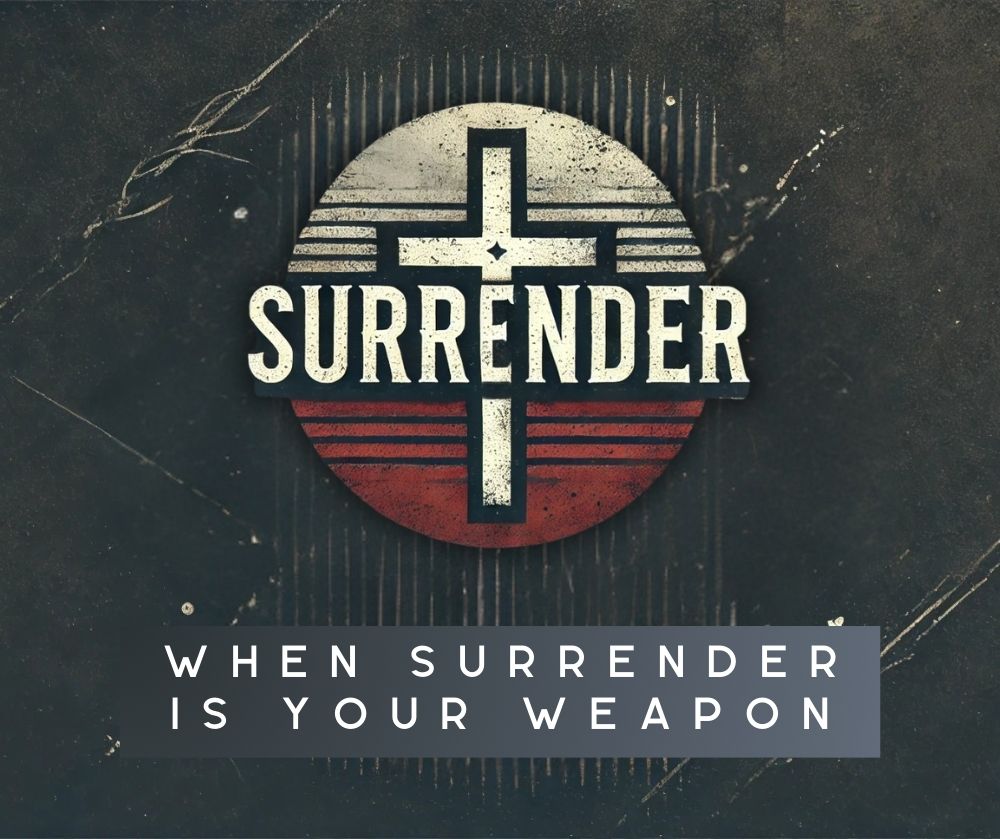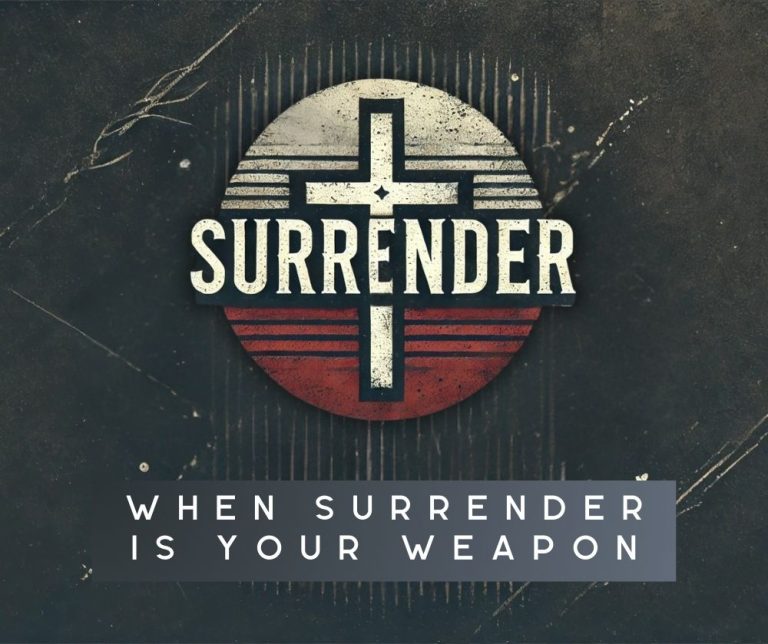O our God, will You not judge them? For we have no power against this great multitude that is coming against us; nor do we know what to do, but our eyes are on You.
2 Chronicles 20:12
When I was in High School, I was part of the Citizens Army Training or CAT. Believe me, there wasn’t anything cute and cuddly. It was grit, determination, and perseverance. One of the basic things we were taught was to look straight forward while we wore our caps almost in alignment with our sights. When the Corps Commander shouts, “Where are you looking?” We’d respond while in attention and with gusto: “Sir, 500 meters away, sir!” This question reminded us that we focused our sights forward and not anywhere else.
Sometimes the most powerful prayer is the most honest one. In the Temple courts, surrounded by a terrified nation, King Jehoshaphat stripped away all pretense of strength and control. No religious formalities, no elaborate spiritual language, no attempt to appear confident or capable. Instead, he uttered words that would echo through centuries: “We have no power… nor do we know what to do, but our eyes are on You.” In that moment of raw honesty, Jehoshaphat discovered that surrender wasn’t weakness—it was a weapon.
The admission of powerlessness feels like defeat until it becomes a declaration of trust. Standing before his people, Jehoshaphat did something leaders rarely do—he admitted complete helplessness. Three hostile armies were advancing. Military advisors were out of strategies. The situation was beyond human solution. Yet in acknowledging their absolute inability to handle the crisis, Jehoshaphat wasn’t raising a white flag to the enemy. He was raising his eyes to God.
The Hebrew phrase for “our eyes are on You” paints a picture of fixed, unbroken focus. It’s the gaze of a child watching their father work, the concentration of an apprentice studying their master, the trust of a patient relying on their surgeon. This wasn’t a casual glance toward heaven or a desperate look around for help. It was a deliberate, sustained focus that said, “We have nowhere else to look, and we choose to look nowhere else.”
There’s profound power in knowing where to look when you don’t know what to do. Think about it—Jehoshaphat had plenty of other places he could have fixed his gaze: the advancing armies, his own military resources, potential allies, escape routes, or the faces of his frightened people. Yet he chose to fix his eyes on the only One who could turn his crisis into a classroom for divine intervention.
Some battles are won not by engaging the enemy but by engaging with God. The natural response to threat is to focus on the danger, analyze the problem, or search for solutions. Jehoshaphat’s response seems almost irresponsible by human standards—in the face of imminent attack, he turns his attention away from the threat and toward the throne. This counterintuitive action transformed his position from victim to victor.
The last words of Jehoshaphat’s prayer became his most potent weapon. “But our eyes are on You” wasn’t a passive resignation to fate. It was an active alignment with divine power. In those words, Jehoshaphat was declaring that he was shifting his focus from the size of his problem to the size of his God. From what he couldn’t do to what God could do. From his limitations to God’s limitlessness.
What you focus on is what you fuel. When Jehoshaphat focused on the advancing armies, fear grew. When he focused on his resources, despair deepened. But when he turned his eyes to God, faith flourished. The enemy armies hadn’t changed. The threat wasn’t diminished. But the perspective had shifted from earthly impossibility to heavenly possibility.
Consider how focus determines the outcome of any challenge. A tightrope walker succeeds by fixing their gaze on the destination, not the drop below. A pilot navigates through storms by trusting their instruments rather than their instincts. A surgeon maintains steady hands by focusing on the precise point of incision. In each case, victory comes through disciplined focus rather than dispersed attention.
“Turn your eyes upon Jesus, look full in His wonderful face, and the things of earth will grow strangely dim in the light of His glory and grace,” writes hymn writer Helen Lemmel. This timeless truth illuminates the power of focused gaze. When we truly fix our eyes on Jesus, our problems don’t necessarily disappear, but they do diminish in the light of His majesty. Our challenges lose their power to intimidate us when viewed in the context of His sovereignty. Through Jehoshaphat’s story, we learn that victory doesn’t come through staring down our enemies but through gazing up at our God.
Every battle brings a simple but crucial choice about where we fix our gaze. Will we stare at our problems until they become giants? Will we focus on our resources until despair overwhelms us? Or will we, like Jehoshaphat, lift our eyes to the One who turns battles into blessings and crises into chronicles of His faithfulness? The choice of focus determines everything that follows.
Godseekers, where are your eyes fixed in this moment? Perhaps you’re facing your own advancing armies—health challenges, financial pressures, relationship conflicts, or spiritual battles that seem overwhelming. The invitation remains: turn your eyes upon Jesus. Not as a religious cliché, but as a strategic act of warfare. When we don’t know what to do, we still know where to look.
Prayer
Father God, forgive us for fixing our eyes on our problems instead of Your presence. Like Jehoshaphat, we acknowledge our powerlessness and choose to focus completely on You. Teach us to maintain this focus not just in crisis but in every circumstance. Thank You that even when we don’t know what to do, we know where to look. In Jesus’ name, Amen.
Personal Reflection
- What situations are currently drawing your focus away from God and onto problems?
- How might your current challenges look different if you fixed your gaze completely on God?
Step of Faith
Today, I will write down my biggest challenge and then spend 15 minutes focusing solely on God’s character and promises rather than on the problem itself.






